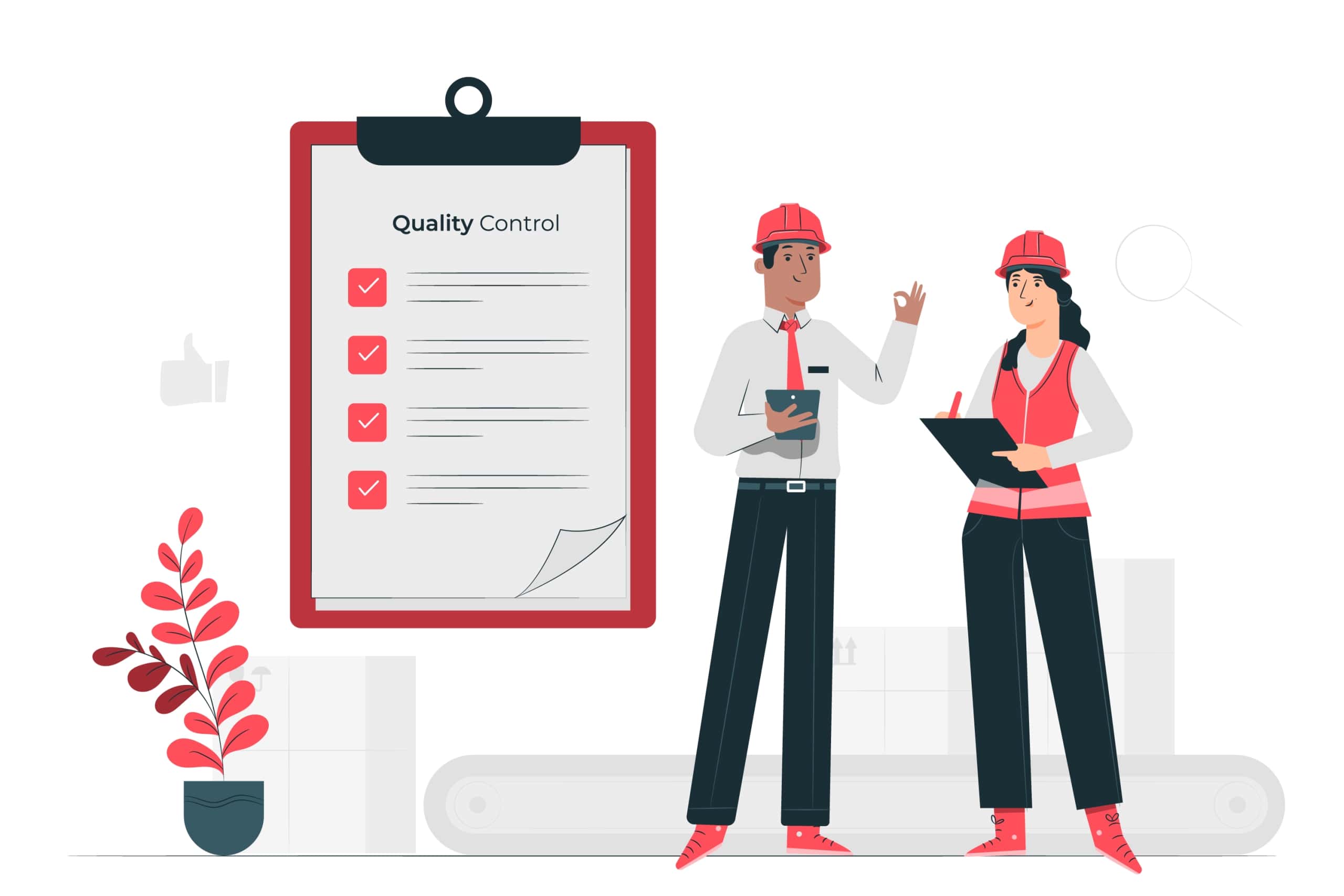Open Communication Channels
Efficient communication is the foundation of any good business partnership, especially in the rapidly evolving field of wet wipes production. Establishing effective communication channels between wet wipes manufacturers and suppliers is crucial to creating seamless, productive, and mutually advantageous cooperation. The need to promote open and honest communication and the methods to do this will be discussed.
First and foremost, establishing consistent communication fosters trust and enhances mutual understanding between both parties. By disclosing their production schedules, material requirements, and quality standards, wet wipes manufacturers enable suppliers to synchronize their activities more precisely with these specifications. By aligning well, the potential for misunderstandings and delays is reduced, therefore minimizing the negative effects on the supply chain and production deadlines. For example, if a supplier is aware beforehand of a scheduled rise in output, they may guarantee they possess the necessary supplies in advance, thereby averting any possible shortages.
In addition, open communication facilitates expedited problem-solving. Problems will inevitably occur in every commercial partnership. When there are issues such as a delay in material delivery, a sudden change in material quality, or unanticipated swings in demand, it is important to have open discussions about these concerns. This enables both sides to immediately discover solutions. Regular meetings, whether conducted face-to-face or online, provide an opportunity to review existing initiatives, resolve issues, and collaboratively generate solutions. This proactive attitude not only facilitates the prompt resolution of challenges but also enhances the connection by demonstrating a dedication to cooperative problem-solving.
Furthermore, using clear communication might result in more favorable negotiating results. Suppliers that grasp the wider scope of your company requirements and obstacles are more inclined to display adaptability and willingness to accommodate. For instance, if a wet wipes manufacturer can elucidate the impact of market circumstances on their budget, a supplier may be more inclined to provide discounts or flexible payment terms. This high degree of transparency promotes a feeling of collaboration rather than a just transactional connection, motivating suppliers to make investments in the achievements of their customers.
In order to facilitate effective communication, wet wipes manufacturers may contemplate using several pragmatic approaches. Regular check-ins, such as monthly or quarterly meetings, may ensure that all parties are kept updated on any changes or forthcoming initiatives. Using contemporary communication technologies such as video conferencing, instant messaging, and collaboration platforms may enable more frequent and comfortable contact. In addition, designating a specialized liaison or account manager helps guarantee the availability of a committed point of contact to immediately handle any difficulties.
Ultimately, the establishment and maintenance of robust supplier relationships in the wet wipes business heavily rely on the presence of open and effective communication channels. By promoting openness, wet wipes manufacturers can synchronize expectations, resolve issues more effectively, and negotiate more favorable conditions, eventually ensuring a more dependable and economical supply chain. Engaging in consistent, transparent, and truthful communication not only improves operational effectiveness but also establishes the groundwork for enduring success and collaboration.
Offer Long-Term Contracts
Providing extended agreements to suppliers in the ever-changing and uncertain realm of wet wipes production may be a smart decision that advantages all parties involved. Long-term contracts provide stability and predictability, which are crucial for cost management, maintaining constant quality, and cultivating robust commercial partnerships.
A key benefit of long-term contracts is the ability to maintain a consistent and predictable cost structure. The pricing of raw materials might vary owing to a range of variables, such as changes in market demand, interruptions in the supply chain, and economic circumstances. Wet wipes manufacturers may safeguard against abrupt price hikes by establishing enduring contracts with suppliers, which enable them to fix prices for a certain duration. Consistency in price facilitates effective financial planning and budget management, which is essential for sustaining competitive pricing in the market.
In addition, extended agreements can result in more favorable prices and conditions. Suppliers prioritize the assurance of consistent business over a long duration and are often prepared to provide discounts or more advantageous conditions in return for this commitment. Wet wipes manufacturers may achieve substantial cost reductions over time. Furthermore, extended-term contracts may have provisions that permit reevaluation in light of market conditions, guaranteeing that both parties may adjust to evolving circumstances while upholding the contract’s general stability.
In addition to financial concerns, long-term contracts facilitate the development of better connections and trust between wet wipes manufacturers and suppliers. When a supplier is aware of having a consistent client over a long time, they are more inclined to make investments in order to guarantee the utmost quality of products and services. This dedication might result in enhanced product quality and dependability, which are crucial elements for sustaining client contentment and brand standing in the wet wipes sector. In addition, a solid connection incentivizes suppliers to prioritize your orders and provide superior assistance, therefore boosting your operational efficiency.
Long-term contracts facilitate teamwork and foster creativity. By establishing a stable and enduring partnership, suppliers and wet wipes manufacturers can collaborate on research and development initiatives focused on enhancing materials or processes. This partnership has the potential to provide inventive solutions that improve product performance, lower expenses, and distinguish your brand in the market. For instance, a supplier may exhibit more willingness to allocate resources towards the development of a novel, environmentally-friendly material if they are certain of a wet wipes manufacturer’s enduring commitment to get it.
Executing extended-duration agreements requires meticulous strategizing and deliberation. It is crucial to unambiguously establish the parameters, such as price, quality benchmarks, delivery timelines, and provisions for unforeseen alterations. In order to maintain mutual alignment and immediately resolve any difficulties, it is essential to include regular evaluations and open communication as integral components of the agreement. Legal guidance may also assist in guaranteeing that the contract safeguards the interests of both parties and adheres to relevant rules.
Ultimately, providing suppliers with extended contractual agreements is a tactical decision that may provide a multitude of advantages for wet wipes manufacturers. Wet wipes manufacturers may improve their operational efficiency and market competitiveness by ensuring cost consistency, obtaining more favorable pricing, and cultivating stronger partnerships. Furthermore, the capacity for collaboration in long-term collaborations may stimulate innovation and ongoing enhancement, positioning wet wipes manufacturers and suppliers for sustained success. Establishing and nurturing these secure and mutually advantageous connections is a crucial measure in attaining sustainable expansion in the wet wipes sector.
Foster Mutual Trust and Respect
Establishing mutual trust and respect is essential for a successful business partnership, especially in the complex dynamics of the wet wipes sector supply chain. Cultivating these attributes with your suppliers may result in enhanced cooperation, improved problem-solving, and ultimately, a more robust and streamlined supply chain.
Establishing Confidence via Dependability
Trust is established upon a bedrock of dependability and steadfastness. Wet wipes manufacturers must uphold their obligations, including adhering to payment timelines, order quantities, and quality requirements. Suppliers are more inclined to provide reliable service and flexibility when they can constantly count on you to fulfill these requirements. Punctual payments are especially vital as they showcase your financial solidity and dedication to the collaboration, diminishing the supplier’s exposure to danger and cultivating a feeling of assurance.
Clarity and Accessibility
Transparency in all transactions is another crucial element of trust. Transparently communicate your manufacturing plans, obstacles, and any modifications that might impact your suppliers. This level of transparency enables providers to strategically plan and adapt their operations in order to more effectively fulfill your requirements. For example, if you expect a sudden spike in demand for your wet wipes, notifying your suppliers well ahead of time enables them to boost production or get more raw materials. This ensures that they can fulfill your higher demands without sacrificing quality or delivery deadlines.
Establishing Respect via Equitable and Just Practices
Respect in business partnerships is shown by adhering to equitable and moral procedures. Regard your providers as collaborators rather than simple sellers. This entails engaging in sincere negotiations, refraining from making unjustifiable requests and recognizing their valuable contributions to your achievements. Acknowledge that your suppliers are independent entities operating under their own limitations and demands. By demonstrating empathy and understanding towards their difficulties, you may establish a more robust and mutually respected alliance.
Cooperative Problem-Solving
When problems emerge, as they certainly will, adopt a collaborative approach to problem-solving instead of a confrontational one. Participate in transparent communication to comprehend the underlying origins of issues and collaborate to discover mutually advantageous resolutions. By adopting a collaborative approach, not only are difficulties resolved more efficiently, but the connection is also strengthened by showcasing your dedication to cooperation and mutual success. For instance, in the event of a delay in material delivery, it is advisable to engage in a discussion about possible solutions, such as modifying production schedules or exploring alternate suppliers, instead of assigning fault.
Engaging in the Practice of Cultivating Enduring Relationships
Perceiving long-term partnerships with suppliers as investments is desirable. Devote sufficient time to understand their company, talents, and limitations. If feasible, visit their facilities to get a direct comprehension of their operations and difficulties. This endeavor demonstrates your appreciation for the connection beyond just economic exchanges and your dedication to a lasting collaboration. Furthermore, it is advisable to include suppliers in your strategic planning activities. When suppliers feel engaged and appreciated, they are more inclined to provide further help to your firm.
Acknowledgment and Admiration
Recognizing and valuing the efforts of your suppliers may significantly contribute to fostering mutual respect. Basic actions such as showing appreciation for punctual delivery, enhancements in quality, or adaptability during difficult periods may enhance the bond. Implementing formal appreciation initiatives, such as presenting supplier awards or showcasing their efforts in business communications, will further strengthen their dedication to your collaboration.
Establishing a Culture of Reciprocal Esteem
Establishing a culture of reciprocal esteem inside your firm has equal significance. Ensure that your procurement and supply chain personnel understand the importance of cultivating robust and courteous relationships with suppliers. Training programs that specifically target ethical sourcing, negotiating skills, and collaborative problem-solving may effectively instill this culture. When all members of your team consistently handle supplier relationships with respect and honesty, it creates a favorable atmosphere for sustained cooperation.
Ultimately, cultivating a sense of mutual trust and respect with your suppliers is a strategic strategy that brings about a multitude of advantages. To establish a robust and durable supply chain, it is crucial to exhibit dependability, openness, and impartiality, actively participate in cooperative troubleshooting, and allocate resources toward cultivating enduring partnerships. These endeavors not only improve operational effectiveness but also establish a supporting network that can adjust and flourish in the presence of market obstacles. In the wet wipes sector, where the utmost importance is placed on quality and consistency, establishing and maintaining solid supplier relationships is a vital component for long-term success.
Collaborate on Innovation
To maintain a competitive edge in the wet wipes sector, it is essential to consistently engage in innovative practices. Engaging in supplier collaboration for innovation may result in the creation of novel materials, enhanced procedures, and more economical resolutions. Adopting a collaborative approach, not only improves the quality of the product, but it also develops connections with suppliers, promoting mutual development and success.
Common Objectives and Shared Vision
Efficient cooperation in the realm of invention starts by ensuring that objectives and vision are in harmony. Both wet wipes manufacturers and suppliers must possess a clear comprehension and reach a consensus on the goals of their cooperative endeavors. Whether the objective is to create a new environmentally friendly substance or enhance the effectiveness of current procedures, a common vision guarantees that all parties are striving for the same results. Convening regular meetings and engaging in strategic planning sessions may facilitate the establishment of shared objectives and the delineation of a clear plan of action to attain them.
Utilizing Specialized Knowledge and Available Resources
Suppliers often offer distinctive skills and resources that may be quite beneficial in the process of innovation. Wet wipes manufacturers may expedite the creation of novel goods and solutions by using their particular expertise. For instance, a provider with vast expertise in biodegradable materials may offer crucial knowledge and advanced techniques to create a fresh range of wet wipes that are ecologically sustainable. This collaboration enables both parties to capitalize on their respective strengths, leading to the development of more resilient and commercially viable technologies.
Collaborative Investigation and Innovation
Collaborative research and development (R&D) activities are an effective means to promote innovation. Wet wipes manufacturers have the opportunity to engage in collaborative research and development (R&D) initiatives with suppliers. This collaboration allows them to investigate novel raw materials, experiment with various formulas, and enhance wet wipes manufacturing procedures. Collaborating on the expenses and uncertainties linked to research and development might enhance the viability for both parties to invest in revolutionary advancements. Furthermore, the cooperative character of these initiatives often results in expedited problem-solving and innovative solutions, as a wide range of viewpoints and specialized knowledge converge.
Innovation Workshops
Establishing innovation centers or hosting frequent seminars may also foster cooperation. These platforms offer specific areas and designated periods for generating ideas, creating prototypes, and evaluating new concepts. These hubs provide direct engagement and real-time input by assembling teams from both the wet wipes manufacturer and supplier sides. This setting cultivates a culture that promotes ongoing enhancement and originality, propelling both gradual and revolutionary progress in the creation of products.
Implementation of Trial Initiatives and Experimentation
After the development of new ideas or materials, it is essential to conduct pilot programs and testing to confirm their viability and efficacy. Engaging in partnerships with suppliers for these pilot projects enables the opportunity to conduct practical experiments in controlled environments. The purpose of this collaborative testing phase is to detect any possible faults at an early stage and allow for required improvements to be made before full-scale manufacturing. Effective pilot programs can expedite the process of bringing innovative products to the market, providing wet wipes manufacturers with a competitive advantage.
Collaborative Investment in Technology
Investing in cutting-edge technology is often necessary for fostering innovation. Wet wipes manufacturers may alleviate the cost burden of purchasing and deploying new technology by forming partnerships with suppliers. Investing in cutting-edge manufacturing equipment or sophisticated material testing facilities becomes more feasible when the expenses are divided among many parties. This reciprocal investment not only improves the ability to create new and original ideas but also reinforces the relationship by showing a joint dedication to advancement and exceptional quality.
Utilizing Open Innovation and External Collaboration.
Occasionally, the most innovative ideas originate from sources that are outside conventional limits. By adopting open innovation, wet wipes manufacturers and suppliers may engage in collaborative partnerships with external entities such as universities, research institutes, and startups. This approach allows for the integration of new views and state-of-the-art technology into the innovation process. The expansion of this collaborative network may expedite the creation of novel goods and solutions that neither partner could have accomplished on their own.
Preserving Intellectual Property
Although cooperation is crucial, it is as vital to safeguard intellectual property (IP). Explicit agreements must be established to delineate the ownership and use rights of any inventions generated as a result of the cooperation. This guarantees equitable benefits for all parties involved in their collective endeavors and promotes continuous cooperation without the apprehension of forfeiting proprietary technology or ideas.
Establishing a Culture that Fosters Innovation
Ultimately, the crucial factor is to cultivate a culture of innovation inside the organizations of both the wet wipes manufacturer and the supplier. Promoting a culture where workers at every level are motivated to share ideas, explore novel methods, and consistently strive for improvement helps foster long-lasting innovation. Acknowledging and rewarding inventive ideas may enhance the motivation of teams to actively engage in collaborative endeavors.
Ultimately, engaging in cooperative innovation with suppliers may result in substantial progress within the wet wipes sector. Wet wipes manufacturers may build improved goods and processes that match changing market expectations by aligning objectives, using knowledge, engaging in cooperative research and development, and adopting open innovation. This cooperative method not only improves the quality and effectiveness of the product but also reinforces the strategic alliance, guaranteeing long-term success and competitiveness in the business.
Conduct Regular Performance Reviews
Regular performance evaluations are an essential element in the maintenance and improvement of supplier relationships in the wet wipes business. These assessments provide a systematic method to assess the efficiency, dependability, and excellence of your suppliers, guaranteeing that they match your criteria and contribute to the success of your organization. Regular performance evaluations are crucial and their proper implementation is necessary.
Defining Precise Standards and Measurements
Establishing precise criteria and measurements is essential for successful performance appraisals. Specify the essential metrics, known as key performance indicators (KPIs), that have the most significance for your firm. These factors may include punctuality of delivery, excellence of materials, cost-effectiveness, promptness in addressing concerns, and adherence to regulatory norms. Through the utilization of clearly defined metrics, one can impartially evaluate the performance of suppliers and pinpoint areas that require enhancement.
Regular and Systematic Evaluations
Performance evaluations should be carried out periodically and consistently. Regardless of whether it occurs monthly, quarterly, or biannually, adhering to a predetermined timetable guarantees that evaluations are conducted methodically and continuously. Periodic evaluations enable the identification of recurring patterns and trends in the performance of suppliers, enabling you to proactively tackle any problems before they become more serious. Additionally, they indicate to suppliers that you are dedicated to upholding rigorous standards and are determined to consistently enhance your performance.
Preparation and Gathering of Data
Adequate preparation is crucial for conducting effective performance evaluations. Gather and examine data pertaining to the predetermined Key Performance Indicators (KPIs). The data might be sourced from internal records, including delivery logs, quality control reports, and financial statements, as well as from direct feedback provided by your production and quality assurance teams. Ensuring the accuracy and comprehensiveness of data guarantees that review conversations are based on facts and centered around objective performance measures.
Bidirectional Communication
Performance evaluations should include a dialogue between both parties. While it is essential to provide feedback to suppliers, it is also important to attentively consider their viewpoints. Suppliers provide essential knowledge on the difficulties they encounter, market circumstances, and prospective opportunities for cooperation. Engaging in an open conversation cultivates a sense of collaboration and reciprocal admiration, facilitating the process of collaborating on resolutions and enhancements.
Resolving Problems and Acknowledging Achievements
Utilize performance evaluations to effectively address any concerns or deficiencies in supplier performance. Clearly articulate the issues, provide concrete instances, and analyze the effects on your business activities. Engage in cooperative efforts with suppliers to develop and implement strategies to address and overcome these concerns. Simultaneously, acknowledge and commemorate accomplishments and advancements. Recognizing exemplary performance serves to validate effective methodologies and incentivizes providers to maintain elevated standards.
Strategies for Implementation and Subsequent Monitoring
Performance evaluations should lead to tangible and practical results. Create explicit action plans with specific deadlines and assigned accountabilities to tackle identified problems and potential areas for improvement. Ensure mutual consensus over the proposed course of action and the anticipated outcomes. Consistent monitoring is essential to monitor advancement and guarantee that agreed-upon measures are being executed effectively. This subsequent action displays your dedication to ongoing improvement and responsibility.
Harnessing the Power of Technology
Utilize technology to optimize the efficiency of the performance evaluation process. Supplier management software facilitates the monitoring of performance indicators, the scheduling of reviews, and the documentation of talks and action plans. These systems provide a single platform for overseeing supplier relationships, enhancing the efficiency and transparency of the review process.
Iterative Enhancement
Performance evaluations should be included in a comprehensive approach to ongoing improvement. Utilize the knowledge acquired from reviews to improve your supplier management processes and optimize your entire supply chain strategy. Promote the adoption of a comparable strategy across suppliers, emphasizing continuous enhancements in their operations and procedures.
Developing More Robust and Resilient Interpersonal Connections
Conducting regular performance evaluations may greatly enhance your relationships with suppliers. By exhibiting a steadfast dedication to fostering their growth and achievement, you create a sense of confidence and allegiance. Suppliers that see themselves as appreciated and assisted are more inclined to exceed expectations to fulfill your requirements, enhancing the dependability and efficiency of the supply chain.
Adjusting to Modifications
The dynamic nature of the corporate environment necessitates the need for ongoing adaptation, and performance assessments serve as a valuable chance to do so. Engaging in discussions on market trends, regulatory changes, and new technology during reviews facilitates mutual understanding and readiness for upcoming issues. By adopting this proactive strategy, you can guarantee that your supply chain maintains its resilience and competitiveness.
Conducting frequent performance assessments is crucial for wet wipes manufacturers who want to maintain high standards and cultivate robust supplier relationships. To promote continuous improvement and maintain consistent supplier performance, it is essential to define explicit criteria, adequately prepare, engage in two-way communication, and build concrete strategies. Implementing this methodical strategy not only improves the effectiveness of operations but also establishes a solid basis of confidence and cooperation, setting your company up for sustained prosperity.
Leverage Bulk Purchasing
Implementing a bulk purchasing strategy may effectively save expenses and improve the dependability of the supply chain for wet wipes manufacturers. Wet wipes manufacturers may enhance their pricing, inventory management, and supplier relationships by purchasing raw materials in bigger quantities. This article provides a comprehensive analysis of the advantages that may be gained by using bulk buying in your organization and offers guidance on how to successfully apply this approach.
Cost Savings through Economies of Scale
One of the main advantages of buying in bulk is the possibility of significant cost reductions. Suppliers often provide discounts for bigger purchases due to the cost savings associated with reduced administrative and logistical expenses in bulk transactions. Wet wipes manufacturers may benefit from these reductions via reduced per-unit pricing. Cost reductions may provide a substantial competitive advantage for wet wipes producers operating in a price-sensitive industry.
Improved Negotiation Power
Buying goods in large quantities increases your ability to negotiate with suppliers. Placing substantial orders increases your client value, providing you with the advantage of engaging in more favorable negotiations about terms and conditions. These extra offerings may include longer payment periods, expedited shipping, or supplementary features like personalized packaging or exclusive account support. Suppliers are often more inclined to meet demands from clients who consistently make large purchases.
Ensured Consistency and Quality
Engaging in bulk purchases might result in a higher level of uniformity in the quality of the raw materials obtained. Placing substantial orders increases the probability of receiving goods from the same manufacturing batch, which guarantees consistency in quality. Consistency is essential in order to uphold the elevated expectations of wet wipe users. Wet wipes manufacturers may enhance product dependability by closely collaborating with suppliers on large-scale orders and using strict quality control methods.
Improved Inventory Control
Efficiently managing inventory is essential for ensuring the seamless functioning of any production process. Engaging in bulk purchases aids in maintaining stable inventory levels, hence mitigating the potential for stockouts or overstocking. Having a consistent and reliable source of raw materials enables enterprises to effectively arrange production and prevent any interruptions caused by unforeseen shortages. In addition, buying items in bulk may result in reduced storage expenses per item, since greater numbers are often more manageable and can be stored more effectively.
Minimized Supply Chain Interruptions
Engaging in bulk buying offers a safeguard against any interruptions that may occur in the supply chain. Wet wipes manufacturers may reduce the negative effects of supplier delays or shortages by keeping larger amounts of inventory. This is especially crucial during periods of market turbulence or unexpected occurrences like natural calamities or political unrest. Having a strong and extensive inventory enables firms to maintain uninterrupted production, assuring continuous fulfillment of consumer needs.
Enhanced Supplier Relationships
Establishing robust supplier connections is crucial for achieving long-term success, and engaging in bulk buying may greatly contribute to this objective. Substantial and consistent orders indicate to suppliers that you are a dedicated and dependable customer. Making this pledge, may enhance confidence and teamwork, therefore motivating suppliers to prioritize your orders and provide superior service. Establishing robust supplier connections may also provide prospects for joint ventures or collaborative innovation initiatives, so augmenting your competitive advantage.
Strategic Planning and Forecasting
Efficient procurement of large quantities requires meticulous preparation and prediction. Wet wipes manufacturers must make precise forecasts of their raw material requirements by considering production schedules, market demand, and inventory levels. Strategic planning guarantees that large purchases are made promptly, avoiding the risks of excessive buying or inventory shortages. Using demand forecasting tools and software may help make well-informed judgments, optimize inventory levels, and minimize waste.
Reducing the Impact of Price Fluctuations
The cost of raw materials may fluctuate significantly owing to a variety of causes, including market demand, geopolitical events, and natural catastrophes. Engaging in bulk buying may effectively reduce the impact of price volatility by securing fixed pricing for a bigger quantity of goods over a longer duration. The constancy of prices enables more precise budgeting and financial planning, resulting in a more predictable cost framework for your organization.
Advantages in terms of the Environment and Logistics
Engaging in bulk purchases may provide environmental and logistical advantages. Reducing the number of shipments decreases the carbon footprint linked to transportation, hence promoting more sustainable business practices. In addition, bulk shipments may streamline logistics, decreasing the frequency of delivery and the accompanying expenses of handling. These improvements enhance the efficiency and eco-friendliness of the supply chain.
Guidelines for Implementation
To effectively execute a prosperous plan for acquiring in large quantities, take into account the following recommendations:
- Conduct Historical Data Analysis: Examine previous patterns of consumption to make precise predictions about future requirements.
- Engage in Negotiations for Long-term Contracts: Obtain advantageous conditions from suppliers by entering into extended agreements that facilitate the procurement of large quantities.
- Expand the Range of Suppliers: To mitigate the hazards of reliance, it is advisable to establish and maintain connections with secondary suppliers while engaging in bulk buying from a major provider.
- Invest in Storage Solutions: Allocate resources to invest in storage solutions to guarantee the presence of sufficient storage facilities for effectively managing greater inventory quantities.
- Utilize technology: Utilize inventory management and demand forecasting technologies to enhance purchase choices and optimize inventory levels.
To summarize, bulk purchasing is a strategic decision that may yield substantial cost reductions, improve the dependability of the supply chain, and fortify the connections with suppliers for wet wipesmanufacturers. Wet wipes manufacturers may enhance the efficiency and resilience of their operations and position themselves for long-term success in a competitive market by meticulously devising and implementing strategies for procuring goods in large quantities.
Stay Informed About Market Trends
Keeping updated on industry trends is essential for wet wipes manufacturers who want to stay ahead of the competition and adjust to the changing market environment. Gaining insight into current trends enables you to predict alterations, enhance your product range via new ideas, and make well-informed strategic choices. Here is an in-depth analysis of the significance of being well-informed and the methods to efficiently monitor market movements.
Forecasting Market Shifts
Many variables, such as customer preferences, technical improvements, and regulatory changes impact the wet wipes market. Wet wipes manufacturers may proactively respond to market shifts and adapt their strategy by being well-informed about these developments. For example, if there is an increasing customer demand for environmentally-friendly items, being cognizant of this trend at an early stage enables you to allocate resources towards sustainable materials and technology, therefore establishing your brand as a frontrunner in the market for eco-friendly products.
Improving Product Innovation
Staying abreast of industry trends is crucial for fostering product innovation. Trends may provide insights into emerging possibilities for the creation or enhancement of products. For instance, a growing emphasis on health and cleanliness as a result of global health emergencies might result in an elevated need for antibacterial or disinfecting moist towelettes. Wet wipes manufacturers may ensure their relevance and attractiveness to customers by being well-informed and developing new goods that cater to evolving demands.
Comparative Analysis of Competitors’ Performance and Strategies
Comprehending market trends also entails closely observing the actions of rivals. Competitive benchmarking assists wet wipes manufacturers in identifying industry best practices and gaining insight into their relative position compared to their rivals. Through the analysis of rivals’ strategies, product releases, and marketing methods, one may get valuable insights into effective approaches and pinpoint areas where their own offers may be lacking. Having this information enables you to enhance your plans and sustain a competitive advantage.
Well-considered and Calculated Choices based on Knowledge and Analysis
Market trends provide crucial information that guides strategic decision-making. Gaining a comprehensive comprehension of market dynamics allows for more knowledgeable and self-assured decision-making, whether it involves entering a new market, introducing a new product line, or adapting pricing methods. For example, suppose an examination of trends shows that there is a significant increase in demand for a certain product or service in a given geographical area. In that case, you may choose to broaden your distribution channels in order to take advantage of this favorable situation.
Ensuring Adherence to Regulations and Effectively Managing Any Risks
Wet wipes manufacturers must keep updated on the regulatory environment, which is a crucial factor in market developments. Regulations pertaining to product safety, environmental effects, and labeling requirements are subject to rapid changes. Wet wipes manufacturers may guarantee compliance, avoid expensive fines, and efficiently handle risks by remaining knowledgeable about these regulatory changes. For instance, anticipated modifications in environmental standards may require a move to biodegradable materials, and having prior knowledge of these changes enables a more seamless transfer.
Analysis of Customer Behavior and Active Involvement of Customers
Market movements often mirror changes in consumer habits and tastes. Keeping abreast of these trends enables firms to comprehend client preferences and the dynamic evolution of their demands. This understanding is essential for creating goods that connect with customers and for creating marketing messages that successfully captivate your intended audience. For instance, if there is a prevailing inclination towards customization, providing personalized packaging or formulas for wet wipes might augment client pleasure and loyalty.
Using Market Research Tools
Wet wipes manufacturers may use a range of market research methods and resources to be well-informed about market trends. To get current knowledge, it is beneficial to subscribe to industry publications, attend trade fairs, and actively engage with professional networks. In addition, using digital technologies like as social media analytics, customer surveys, and market intelligence platforms may provide immediate and up-to-date information on market trends and behavior.
Collaborating with Industry Experts
Engaging in collaboration with industry professionals and consultants might provide significant information about market trends. These professionals often possess a profound comprehension of the sector and may provide strategic counsel derived from their expertise and experience. Regularly consulting with experts for market research may assist firms in staying ahead of trends and making proactive modifications to their plans.
Investing in Continuous Learning
Staying well-informed is crucial in order to keep up with the ever-changing market environment. Motivate your staff to engage in industry webinars, seminars, and training programs. Investing in continual education guarantees that your workforce is prepared with the most up-to-date knowledge and abilities to manage market changes properly.
Utilizing Data Analytics
Data analytics is essential for monitoring and comprehending market developments. Wet wipes manufacturers may make strategic choices by examining sales data, customer input, and market performance measures to uncover patterns and trends. Utilizing sophisticated analytics technologies may provide wet wipes manufacturers with a more profound understanding of market behavior, enabling them to make data-driven choices that improve their competitive stance.
Ultimately, maintaining awareness of market trends is crucial for wet wipes manufacturers aiming to prosper in a dynamic and fiercely competitive business. To preserve their relevance and appeal to customers, firms may use strategies such as predicting market shifts, pushing product innovation, benchmarking against rivals, and making educated strategic choices. Employing market research tools, partnering with industry experts, dedicating resources to ongoing education, and harnessing data analytics are crucial tactics for accurately monitoring and addressing market changes.
Attend Industry Events
Participating in industry events is a crucial tactic for wet wipes manufacturers aiming to maintain competitiveness, promote innovation, and establish strong business connections. These events, such as trade exhibitions, conferences, seminars, and networking meetings, provide exceptional chances to acquire valuable knowledge, exhibit goods, and establish connections with influential figures in the business. This article provides a comprehensive analysis of the advantages of participating in industry events and offers strategies to optimize their worth.
Networking and Relationship Building
Industry gatherings provide excellent opportunity for networking. They facilitate the collaboration of wet wipes manufacturers, suppliers, distributors, and other industry players. By participating in these events, you have the opportunity to cultivate and enhance relationships with current partners and establish new ones. Networking has the potential to facilitate collaborations, partnerships, and commercial possibilities that may not be accessible via other means. Interpersonal exchanges at these events often result in more profound and more reliable commercial connections, which are crucial for sustained success.
Market Intelligence and Trends
Participating in industry events provides individuals the opportunity to get the most up-to-date market knowledge and trends. These events often include lectures and panel discussions led by industry professionals who provide their perspectives on existing market circumstances, new trends, and future forecasts. Through active engagement in these sessions, you may acquire a more comprehensive comprehension of the competitive environment, consumer inclinations, and technological progressions. Acquiring this information is essential for making well-informed strategic choices and maintaining a competitive advantage.
Displaying Products and Advancements
Industry events provide exceptional opportunities to exhibit your goods and ideas. Participating at trade exhibitions provides an opportunity to showcase your most recent wet wipes goods, technology, and solutions to a wide range of people. This level of exposure has the ability to allure prospective clients, collaborators, and investors. Presenting your inventions in person is a tangible and engaging experience that may have a greater effect than other marketing methods. Additionally, it provides a chance to get instant feedback from participants, which may be helpful for enhancing your goods and ideas.
Education and Career Advancement
Industry events often include educational sessions, workshops, and training programs as part of their conferences and seminars. These workshops provide significant educational opportunities for both you and your team. Participating in these training events will allow you to augment your expertise and proficiency in several domains, including product development, marketing, supply chain management, and regulatory compliance. Continuous professional development is crucial for maintaining up-to-date knowledge of industry standards and optimal methods.
Competitive Analysis
Industry gatherings provide a distinct chance to do competitive analysis. By closely examining the booths and presentations of rivals, one may get valuable information into their goods, marketing methods, and general market positioning. By directly observing, you may compare your products with those of your rivals and pinpoint areas where you might stand out and enhance. Gaining a competitive edge may be achieved by developing strategies based on a thorough understanding of the competitive environment.
Investigating Emerging Technologies and Potential Suppliers
Trade exhibitions and industry gatherings often showcase cutting-edge technology and advancements from several wet wipes manufacturers and service providers. Through the exploration of these displays, you may uncover novel materials, equipment, and processes that have the potential to augment your production capabilities and improve the quality of your products. Participating in these events and interacting with vendors might result in discovering fresh sourcing prospects and securing more favorable price arrangements. Staying updated with technological innovations guarantees that your operations maintain efficiency and competitiveness.
Building Brand Awareness
Engaging in industry events enhances the recognition and trustworthiness of a brand. Participating in significant trade fairs and conferences establishes your firm as a reputable and influential entity in the industry. It enhances the visibility among important stakeholders, such as prospective consumers, partners, and media. Participating actively in these events enhances your brand’s image and has the potential to result in heightened visibility and credibility within the market.
Regulatory and Compliance Updates
Wet wipes manufacturers in the wet wipes business must prioritize staying updated on regulatory and compliance issues. Industry gatherings often include specific sessions for addressing alterations in legislation, standards, and compliance needs. Participating in these sessions will guarantee that your goods and activities adhere to the most up-to-date rules, therefore preventing possible legal and financial consequences.
Worldwide Viewpoints
Several industry events draw participants from across the world, offering a comprehensive view of the wet wipes business on a worldwide scale. Interacting with participants from many geographical areas may provide valuable information on worldwide market patterns, consumer habits, and regulatory landscapes. Having worldwide exposure might enable you to recognize novel market prospects and extend your firm beyond regional boundaries.
Optimizing Event Attendance
In order to optimize the benefits of attending industry events, it is advisable to use the following strategies:
- Be proactive: Conduct thorough research on the event program, pinpoint important sessions and exhibitors, and strategically arrange your involvement. Establishing explicit goals for what you want to accomplish throughout the event might assist in maintaining concentration and maximizing your time.
- Be actively involved: Take an active role in networking events, seminars, and conversations. Interact with other participants by asking questions, sharing your views, and actively engaging in discussions to establish valuable relationships.
- Post-event: After the event, engage in follow-up communication with the connections you established. Utilize electronic mail, engage on professional networking sites, and arrange appointments to deliberate on prospective collaborations or partnerships.
- Disseminate Insights: Communicate the information and insights acquired during the event to your team. Organize debriefing meetings to analyze important insights and determine their applicability to your company strategy.
Attending industry events is a strategic decision that may provide wet wipes manufacturers with several advantages, such as networking possibilities, market insights, product exhibitions, and professional growth. Wet wipes manufacturers may get a competitive edge, establish vital connections, and position themselves for long-term success in a competitive market by actively engaging in these events.
Build a Diversified Supplier Base
Developing a varied and inclusive group of suppliers is a strategic method that may improve the ability of your supply chain to withstand challenges and adapt to changing circumstances. For wet wipes manufacturers, maintaining a diverse range of suppliers guarantees a consistent flow of raw materials, minimizes potential hazards, and offers possibilities for cost reduction and innovation.
Addressing Supply Chain Risks
Diversifying your supplier base is crucial for risk mitigation. Dependence on a single supplier might pose risks, since any interruption in their activities, such as natural calamities, political instability, economic downturns, or labor strikes, can significantly affect your output. By diversifying your providers, you mitigate your reliance on any one source and establish a safeguard against such interruptions. This duplication guarantees that in the event of any problems encountered by one source, alternative suppliers may intervene to ensure the uninterrupted flow of your supply chain.
Ensuring Competitive Pricing
Having a variety of suppliers might result in more competitive pricing. Having numerous suppliers vying for your business fosters a competitive atmosphere that may lead to cost reduction. Having alternatives gives you an advantage in negotiations since providers are aware that you have other options. This competition has the potential to lead to improved pricing, more advantageous payment arrangements, and overall reductions in costs. Additionally, it provides the opportunity to examine several pricing models and choose the most economical choices for your company.
Enhancing Quality and Fostering Innovation
Various providers contribute distinct strengths and novelties to the discussion. Collaborating with a wide array of suppliers allows you to use their unique knowledge, advanced technology, and efficient processes to your advantage. The presence of many perspectives may result in the development of superior materials and creative solutions that improve the range of products you provide. For instance, one supplier may have expertise in sustainable materials, while another provides state-of-the-art production methods. Utilizing these varied talents may assist you in creating exceptional items that fulfill changing customer needs.
Enhancing Flexibility and Scalability
Having a diverse supplier base offers increased adaptability and expandability in your operations. By having several suppliers, you can readily adjust your production levels to align with market demand. To expedite manufacturing, it is advantageous to have many suppliers since this enables the acquisition of more supplies without overburdening a single provider. Flexibility is essential for adapting to changes in the market, swings in demand based on seasons, or unexpected surges in orders.
Expanding Market Reach
Collaborating with providers from other geographical areas may help enhance the scope of your business. Suppliers located in different areas might provide valuable information on regional marketplaces, customer inclinations, and regulatory prerequisites. Acquiring this information may assist you in customizing your items to suit various markets and effectively managing the intricacies of international trading. In addition, having a supplier base that is spread out over several geographical locations may safeguard your supply chain from interruptions that may arise from regional events, such as natural calamities or political unrest.
Strengthening Supplier Relationships
Expanding the range of vendors you work with does not imply diminishing the strength of your current supplier partnerships. Instead, it entails establishing robust, cooperative partnerships with several providers. These partnerships need to be founded upon trust, reciprocal advantage, and transparent communication. By seeing your suppliers as collaborators and making substantial investments in enduring relationships, you can establish a supporting network that is dedicated to your prosperity. Consistent communication, periodic evaluations, and collaborative projects may assist in preserving these connections and guaranteeing synchronization with your company objectives.
Executing a Diversification Strategy
In order to successfully broaden the range of suppliers you work with, it is advisable to take the following measures:
- Assess Current Suppliers: Conduct a thorough assessment of your existing suppliers to determine any dependence or potential dangers. Evaluate their performance, dependability, and the kind of materials they provide. This evaluation will assist you in identifying the areas where diversification is most necessary.
- Research New Suppliers: Conduct a comprehensive investigation to find prospective new suppliers. Seek for suppliers who provide the specific products, high standards of quality, and consistent dependability that you want. Take into account variables such as their credibility, economic viability, and ability to fulfill your requirements.
- Diversify by Category and Geography: Implement a strategy of diversification by allocating your providers across several categories and geographic locations. To mitigate the risk of regional interruptions, it is advisable to get raw materials from many suppliers situated in different countries.
- Pilot Programs: Before committing to new suppliers, it is advisable to carry out pilot projects in order to assess their skills and dependability. Commence with more modest orders to assess their performance and adherence to quality standards.
- Define Explicit Standards: Establish explicit standards for the selection and evaluation of providers. The criteria should include quality benchmarks, adherence to delivery schedules, cost-effectiveness, the possibility for innovation, and compliance with laws.
- Create Robust Contracts: Engage in negotiations to establish contracts that precisely outline terms, expectations, and potential outcomes. Make sure that contracts have provisions for quality assurance, delivery timelines, and consequences for failure to comply.
- Ensure Consistent Communication: Maintain open and regular channels of contact with all of your vendors. Consistent updates, frequent meetings, and thorough performance evaluations may effectively resolve any concerns swiftly and enhance the quality of your connections.
- Promote Cooperation: Foster cooperation and stimulate innovation by actively engaging suppliers in your product development processes. Collaborative efforts and iterative feedback mechanisms may result in ongoing enhancement and reciprocal development.
- Monitor Performance: Regularly assess the performance of all vendors. Utilize performance indicators and conduct frequent evaluations to verify that individuals satisfy your established criteria and actively contribute to your company goals.
- Maintain Flexibility: Be ready to modify your supplier strategy in response to changing market circumstances. Consistently seek out and evaluate new prospects, and be prepared to engage new providers if needed.
To summarize, establishing a varied range of suppliers is a strategic method that improves the ability of the supply chain to withstand challenges, decreases potential hazards, and fosters the development of new ideas. Through meticulous supplier selection and management, wet wipes manufacturers may secure a consistent flow of superior materials, attain financial advantages, and preserve operational adaptability. Executing a diversification plan involves extensive investigation, precise benchmarks, and continuous communication. However, the advantages of a resilient and flexible supply chain make the endeavor very worthwhile.










